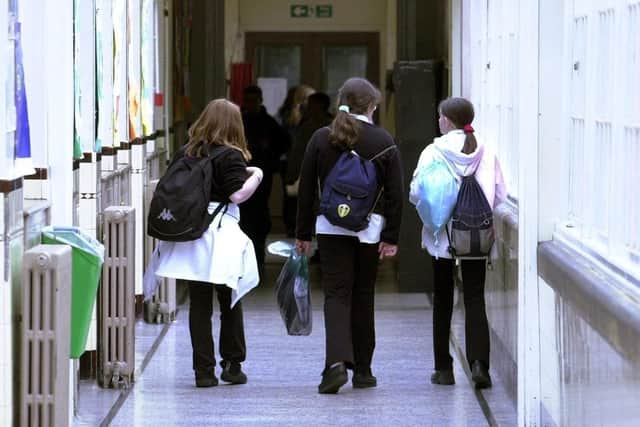Level up standards in less successful schools by incentivising teachers who take on challenging environments - Andy Brown
Yorkshire includes a very wide range of communities yet results in our county as a whole also declined relative to those in the South East. It seems that there is more levelling down going on than levelling up.
The reasons for this are deep seated. Anyone who has ever taught in a tough inner city area is likely to tell you that it is not the easiest of jobs. Even a student who really wants to learn struggles if they are trying to do so in the company of others who have given up or actively hate being in the class. Surround a student with keenly interested companions who ask good questions and compete to succeed and they will be much more likely to do well. In affluent areas far more children tend to arrive at school with an enthusiasm for learning. That does not mean that it is impossible to run a good school in an inner city area.
Advertisement
Hide AdAdvertisement
Hide AdAsk any estate agent about schools and they are likely to be able to give you chapter and verse on which ones are aspirational and how much difference it will make to the price of a house if you live in the catchment area. Few readers would criticise parents for buying homes in the places where their children stand the best chance of doing well in life. Yet the consequence of all those perfectly understandable decisions about where to live can be schools where success is easy to achieve and others where it is desperately hard to come by. There remain large parts of our inner cities where educational disadvantage reflects disadvantage on virtually every other indicator. Simple things like an absence of a quiet place to do homework, or a lack of access to a decent computer can make all the difference and a lot of students encounter much greater challenges.


There are no simplistic solutions to complex social problems like this. Bringing back grammar schools and secondary moderns would be more likely to harm than help. There are virtually no comprehensive schools in the country where the children aren’t already streamed by ability for each subject. That enables much more sophisticated recognition of each child’s strengths and weaknesses than a crude test at 11 that categorises some children as overall failures and others as worthy of hothousing to success.
What is required in order to level up the standards in less successful schools and colleges is to provide effective support for those who are moving things in the right direction. Teachers who dedicate their careers to working in challenging environments need an incentive to stay and that means additional financial rewards. Schools that need to support learning with expensive things like free computers, extra after school classes, summer schools and well equipped learning environments can’t do so without getting extra funding per pupil.
There is a huge need to regenerate some of our most run down areas so that housing, schooling, employment and health are tackled with equal vigour. What we have been getting instead is an attempt to re-organise deck chairs which removes decisions over schooling from any meaningful local democratic control.
Advertisement
Hide AdAdvertisement
Hide AdUnder both the last Labour government and more rapidly under successive versions of the current Conservative government there has been an assumption that change can be achieved by rebranding a school as an academy and changing the organisational structure. For a number of already successful schools this has resulted in some small gains as they have gained the freedom to make their own decisions and make more decisions about how to spend money. They also became free to adopt their own teaching styles and in some places innovative approaches to teaching have genuinely driven forward improvements.
Other schools have ended up under the control of remote chains of academies where the Chief Executive pays themselves large salaries to tell the teachers that they aren’t working hard enough whilst the school continues to fail. Any parent seeking to influence what is happening in their child’s education would be wasting their time contacting their local councillor because the school has been put under the control of a shadowy organisation that might ultimately be under the control of a hedge fund.
If we genuinely wish to level up then tinkering with structures is an unhelpful distraction. What it takes is putting in the long hard yards of dedicated work to improve our inner cities and there is no escaping the fact that this needs targeted resources and decades of determined work.
Andy Brown taught in inner city London colleges for 15 years before becoming Deputy Principal of Keighley College, Head of Hillsborough College, and Director of Young People’s Learning for Yorkshire and the Humber. He is currently the Councillor for Aire Valley and a member of the Green Party.